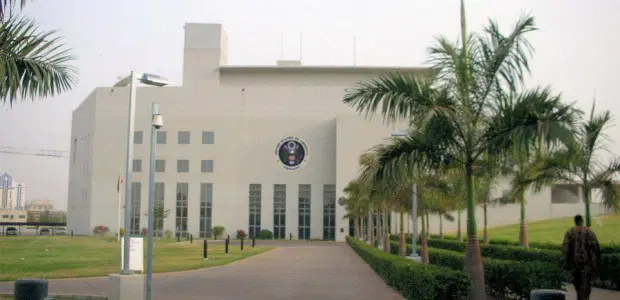The Federal Government on Thursday said the deployment of 10,000 tractors and 50,000 units of assorted agricultural equipment across the country did not materialise because of the outbreak of the COVID-19 pandemic.
It disclosed this in Abuja at the unveiling of the Pay-As-You-Go Tractor Financing for Agriprenuers in Nigeria by Heifer International, where the firm announced an investment of $1m in the provision of tractors for farmers.
The Minister of Agriculture and Rural Development, Abubakar Mahmood, said the government had signed agreements with Brazil to bring in tractors to Nigeria but this could not happen, though efforts were ongoing to actualise it.
He said, “As a supplement to efforts of the Federal Ministry of Agriculture and Rural Development subsidy programme where agro-machinery and other parts are procured and sold to farmers, in addition, the Federal Government under a bilateral arrangement had signed the protocol of intent with the Government of Brazil to acquire 10,000 units of tractors and 50,000 units of assorted equipment with a loan of $1.2bn.
“This arrangement would have materialised by now if not for the COVID-19 pandemic. However, it is our hope that the Nigerian farmers will benefit from the gesture when it is available very soon.”
The minister, who was represented by a Director at FMARD, Abdullahi Abubakar, said mechanised farming in Nigeria was far too low when compared to the recommendations of the United Nations, stressing that private investors would have to partner government to cover this gap.
He said, “Although agricultural machinery and equipment are expensive, we cannot reach where we want in agriculture without mechanisation. The mechanisation level in this country is one of the lowest in the world and indeed sub-Saharan Africa.
“As weighted, 0.027 horse-power per hectare is what we have in this country, whereas the Food and Agriculture Organisation of the United Nations gave a minimum recommendation of 1.5HP/hectare. You would agree with me that the gap is too wide.
“This obviously shows the urgent need for intervention. The Federal Government, particularly the Federal Ministry of Agriculture and Rural Development is quite aware of the need for intervention, which is why there is a need for collaboration with the private sector.”
Mahmood added, “The innovative Pay-As-You-Go financing scheme by Heifer International in collaboration with various centres is a welcome development. The scheme is a strategic public-private partnership aimed at increasing smallholder farmers’ access to tractors.”
Mahmood noted that it had been difficult for the government to perfect agricultural mechanisation for smallholder farmers, but expressed hope that the Heifer initiative would support addressing this concern.
“We have been doing a lot of trials to see how we can perfect access to mechanisation for our smallholder farmers but it has been very difficult, I must confess. But with this initiative, I think there is light at the end of the tunnel,” he stated.
The Senior Vice President of Africa Programmes at Heifer International, Adesuwa Ifedi, said the firm was investing $1m in its tractor booking platform, Hello Tractor, to provide loans for tractor purchases, adding that the loans would be repaid from revenues earned by leasing the tractors to local farmers.
She said the “Pay-As-You-Go Tractor Financing for Increased Agricultural Productivity in Nigeria” had already enabled tractor purchases in Nasarrawa, Abuja and Enugu states.
Ifedi said, “The pay-as-you go model provides financing for entrepreneurs who want to create jobs by capitalising on the demand for tractor services on Africa farms, but who lack traditional forms of collateral.
It is a way to unlock capital for youth who have strong business skills that can help transform African agriculture but are often overlooked by private equity investors.”










